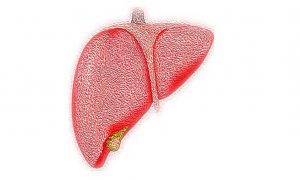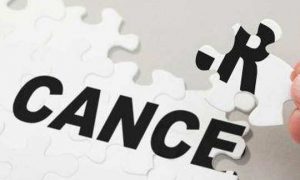While gallstones serve as a risk factor for GBC, will all individuals with gallstones develop gallbladder cancer? Here’s what the health expert says
Gallstones have long been recognised as a significant factor associated with gallbladder cancer (GBC), particularly in regions like northern India where the incidence of both conditions is high but it involves a complex interplay of genetic predisposition, environmental factors and chronic inflammation. While gallstones serve as a risk factor for GBC, health experts reveal that it is essential to recognise that not all individuals with gallstones will develop cancer.
Read More: Migraine Attacks In Summer: 5 Reasons Why Headaches Feel Worse During Weather Change
What are the factors associated with Gall Bladder Cancer?
In an interview with HT Lifestyle, Dr Shivendra Singh, Senior Consultant and Chief of GI Oncosurgery and Liver Transplant Services at Rajiv Gandhi Cancer Institute and Research Centre (RGCIRC), expalined, “Gallstones are often detected during examinations for gallbladder cancer, and often, it remains a reason for misdiagnosis. Various studies in India have documented presence of gall stone in 70–90% of patients with GBC. The pathogenesis of GBC is influenced by various co-factors, including age, gender, socio-economic status, and comorbidities such as chronic infections with Salmonella typhi or Helicobacter pylori. Furthermore, environmental factors like exposure to pollutants, heavy metals, and dietary habits also play a role in carcinogenesis.”
He shared, “It has been observed that middle aged women around 40 and above with a demographic profile, often referred to as “fat, fertile, female over forty” are generally the subset which is mostly affected with gall stone disease. Additionally, the type of gallstones prevalent in different regions also contributes to the varying incidence of GBC. For instance, in northern India, where cholesterol/mixed stones are predominant, the association with GBC may be more pronounced compared to regions like South India, where pigment stones are more common.”
Should you opt for gallbladder removal due to fear of cancer?
Dr Shivendra Singh revealed, “It’s important to note that gallbladder issues, including the presence of gallstones, do not always lead to gallbladder cancer. While gallstones are a known risk factor for cancer development, the majority of people with gallstones will not develop cancer. It’s crucial not to generalize the need for gallbladder removal solely based on the presence of gallstones or fear of cancer. Each case should be evaluated individually, considering the patient’s symptoms, medical history, and overall health.”
He asserted, “It’s essential to weigh the risks and benefits on an individual basis, considering factors such as age, overall health, and the presence of red flag symptoms. Regular screening and surveillance may be warranted for individuals with known risk factors, especially those with a family history of GBC or other biliary tract malignancies. A comprehensive understanding of the underlying mechanisms, coupled with personalised risk assessment, is crucial for effective prevention and management strategies. Chronic irritation caused by gallstones has been linked to gallbladder cancer, presenting symptoms such as loss of appetite and stomach fullness. However, pain is uncommon in gallbladder cancer, typically occurring only during inflammation due to cholecystitis.”
Read More: How Deficiency Of These Vitamins Causes Dandruff And Other Hair Problems
Pointing out that gallbladder cancer may not show much symptoms as such because it spreads very fast, Dr Shivendra Singh said that patients may face certain discomfort and while symptoms can vary, there are some common signs to be aware of:
- Warning signs include nausea, vomiting, weight loss, and discomfort in the right hypochondrium or lower right side of the chest wall.
- In some cases, gallbladder problems can lead to jaundice, a condition characterized by yellowing of the skin and eyes. Jaundice occurs when bile flow from the liver is obstructed, often due to gallstones or inflammation of the gallbladder.
- Some individuals may notice a lump or heaviness in the right upper abdomen. This sensation can be accompanied by discomfort or a feeling of fullness.



































